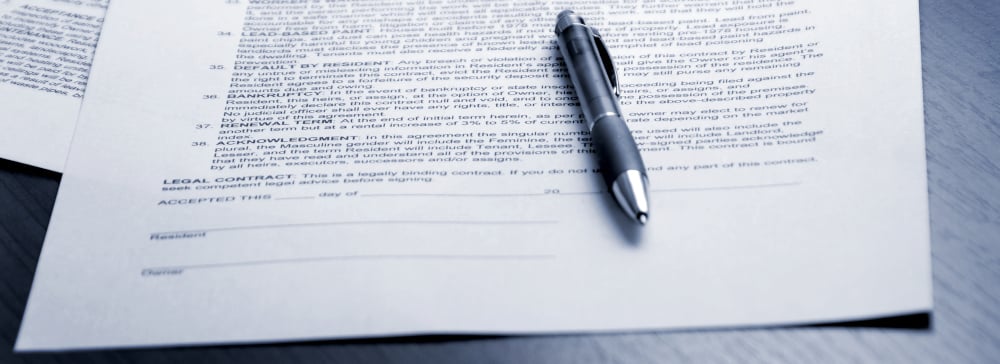Table of Contents
Florida’s medical practitioners have an ethical and legal duty to care for the well-being and health of their patients. When physicians, surgeons, and other medical professionals deviate from the appropriate standard of care, they put patients at risk. Due to its technical nature, medical malpractice is a complex area of law.
If you suspect a healthcare provider has caused you harm, call our team of personal injury lawyers at Kogan & DiSalvo. We will fight for your right to recover fair and reasonable compensation as a victim of medical malpractice in Fort Lauderdale and Broward County. Schedule a free consultation today.

For a medical malpractice claim, choosing an experienced legal team with a record of excellent results is essential. It is the key to building a compelling case for compensation.
As Florida’s premier personal injury firm, Kogan & DiSalvo has recovered millions in settlements and awards for clients across the state. We are a boutique firm that gives every case the personal attention and intense preparation it deserves. Unlike larger firms where you’re treated like a case number, we provide customized legal solutions that address your immediate and long-term needs.
We leverage the experience of award-winning civil trial attorneys and enlist third-party experts to investigate your case and develop a solid legal strategy to achieve your goals. Trust that a medical malpractice attorney in Fort Lauderdale is here to advocate for you and protect your interests at every stage of your claim.

Medical malpractice is defined as any act or omission by a healthcare professional that deviates from accepted norms of practice and results in injury to the patient. In the U.S., medical malpractice law is under the jurisdiction of individual states, which have their own procedural requirements and time limits for taking legal action against a negligent medical provider.
To have a viable medical malpractice claim, the following four criteria must be proven:
Disappointment with the results of a surgery or medical treatment does not qualify as malpractice. To build a viable claim, patients must be able to establish that an act or omission occurred in their care and that this negligence caused demonstrable harm and financial burdens.
Every year, thousands of injured patients file medical malpractice claims against physicians, anesthesiologists, pharmacists, nurses, dentists, and other healthcare professionals. The National Practitioner Data Bank reports that Florida ranks third in the country for medical malpractice litigation. More than half of these lawsuits allege negligence in hospital inpatient facilities. Medical malpractice cases are generally lengthy, complex ordeals.
You’ll need the resources and expertise of an accomplished Fort Lauderdale medical malpractice lawyer to improve your chances of a favorable outcome.
Two types of errors can constitute medical negligence:

In March 2023, House Bill 937 was signed into law in Florida, shifting the state’s pure comparative negligence standard to modified comparative negligence, making it more difficult for plaintiffs to recover damages in civil claims. It bars plaintiffs from recovering damages if they are more than 50 percent (i.e., 51%+) for their injuries. If the plaintiff is found to be 50% or less at fault, their recovery is reduced proportionally to their fault.
While this standard applies to personal injury cases such as car accidents, it also applies to medical malpractice cases. If the court determines that a patient’s actions worsened their condition, the damages they can recover may be reduced accordingly. Therefore, patient compliance is essential in medical malpractice claims.

Financial compensation from medical malpractice litigation is only available to victims who bring their lawsuit within the applicable statute of limitations. This is the prescribed time limit for taking legal action against defendants. Florida law provides that a person filing a medical malpractice lawsuit in Fort Lauderdale must do so within two years of the incident or the discovery of the injuries.
You cannot sue if more than four years have elapsed since the incident that caused the injury in any circumstance. However, there are exceptions to this rule.

At Kogan & DiSalvo, we leverage in-depth knowledge of Florida’s medical negligence laws. Whether suing an individual physician or a Broward County hospital system, you can depend on our dedicated attorneys for compassionate yet results-driven representation.
The most common medical mistakes that qualify for legal action fall into these categories:
Errors in the diagnostic process can result in a wrong, missed, or delayed diagnosis. Patients cannot receive the appropriate treatment on time without an accurate and timely diagnosis. This can have life-altering consequences for patients. The failure to diagnose a potentially fatal condition means that valuable time is lost, during which the disease can progress and worsen dramatically.
The most frequently misdiagnosed illnesses include breast cancer, heart disease, cancerous tumors, blood clots, and infection.
Medication errors remain alarmingly prevalent despite new and improved technologies to improve safeguards, especially in hospitals and long-term nursing facilities. There are many ways administering medication can go wrong. The doctor may prescribe the wrong drug or an incorrect dosage.
Further, patients are at risk for irreparable harm when a medication is prescribed without considering known allergies or other contraindications. Healthcare providers who administer the drug via the wrong route (intravenous versus oral) may be held liable if the patient suffers adverse reactions.
Mistakes during routine and complicated surgeries can result in life-long pain and disability. Communication breakdowns, lapses in judgment, unsafe practices, and gross incompetence can lead to grave errors on the operating table.
Malpractice claims against surgeons are so pervasive that researchers from the National Library of Medicine caution that “it is likely surgeons will encounter (malpractice litigation) at some point in their career.” Surgeons have been taken to court for operating on the wrong body part, leaving surgical instruments inside the body, as well as nerve and organ damage resulting from negligent maneuvers.
Much of recent litigation has focused on laparoscopic and robotic surgery errors resulting in severe burns, perforated organs, and severe blood loss. Improperly administered anesthesia that causes injury or death can also merit malpractice litigation.
Emergency rooms are among the most harried of clinical environments, with staff performing triage on multiple patients. This chaotic setting creates ample opportunities for serious errors, even among skilled nurses and doctors. Misdiagnosis, failure to order further medical tests, premature discharge, and medication mistakes are some of the most documented emergency room errors.
Medical providers have a duty to speak candidly to patients about known risks of a treatment or procedure. In this way, patients can make an informed decision if they agree to undertake this risk. If informed consent is not provided, and the treatment leads to injury, the patient may be able to sue the doctor–claiming they would have elected out of the treatment had they been aware of potential risks and complications.
When patients are released from the ER or a hospital setting, they need clear instructions that outline a medical plan for follow-up. This may include dietary restrictions, instructions on medications, and what to do in the event of certain symptoms or complications. Unfortunately, these instructions are often woefully inadequate or confusing to patients, who may not understand the gravity of their situation. If an incomplete discharge with poor patient instructions led to health complications, bodily harm, or death, this may certainly amount to malpractice.
When something goes wrong before, during, or after childbirth, the consequences for the baby and mother can be devastating. Some birth injuries are immediately apparent, while others can take months or years to be diagnosed.
Possible signs your baby has suffered a birth injury include:
Contact a Fort Lauderdale medical malpractice attorney if your baby has unexpected or concerning symptoms. If you have grounds for malpractice, Kogan & DiSalvo will aggressively pursue compensation for your child’s long-term medical care, rehabilitative therapy, and other required services.

If you suspect medical negligence, the steps you take can impact the strength of your case. Here is what you should do if you or a loved one is injured while under a provider’s care.
Your first instinct might be to contact the physician or provider who initially treated you. However, seeing another provider for your peace of mind is wise.
Providers are required to document every aspect of your care. Save and make copies of diagnostic tests, electronic health records, and prescriptions. If applicable, save discharge instructions, side effects of medications, worsening of symptoms, the dates of your diagnosis and treatment, and any further developments.
Also, save all medical bills related to your initial care and the treatment you received resulting from malpractice.
Your next call should be to a proven medical malpractice attorney in Fort Lauderdale. Remember, the statute of limitations on personal injury claims is short, and these cases are complex. The sooner you consult a lawyer, the more time they have to investigate your claim and build a case for a fair settlement reflecting your losses.

As noted, proving a medical malpractice lawsuit in Fort Lauderdale hinges upon the standard of care you received. Because of the highly technical aspects of medicine, it will be necessary to hire medical experts from the same field as the defendant to testify on the plaintiff’s behalf. The defense will also use experts to prove that the medical standard of care was met. Expert witnesses help jurors grasp technical information that is foreign to them.
An experienced Fort Lauderdale medical malpractice lawyer can also subpoena records of medical procedures and will question, under oath, the provider and others involved.
If you feel your injuries and health complications are the direct result of negligent treatment from a healthcare provider–whether in an emergency room, hospital, or outpatient clinic–you may have grounds for seeking legal redress.
A medical malpractice claim can be filed against any number of healthcare providers or entities in Florida, including:

Your lawyer must first attain an affidavit or a written medical expert opinion that confirms that your injuries directly stem from medical malpractice. The next steps are as follows:
Most medical negligence claims will be settled out of court, but if a settlement is not reached, the case will eventually be argued in front of a jury.

Because the injuries caused by malpractice are often life-changing, damages can be significant. Damages are the remedy that the injured party requests the court award to make them whole after a personal injury. Florida allows claimants to seek three types of damages in malpractice claims.
Economic damages are actual financial losses that result from a defendant causing harm to the plaintiff. These are much easier to quantify for settlement purposes and include the following:
Non-economic damages are intangible losses a patient has experienced due to medical malpractice. While these damages are more challenging to quantify, they are still impactful and may consist of the following:
As of March 2023, a bill was signed capping non-economic damages for medical malpractice or medical negligence claims. There are still no economic caps for medical malpractice in Florida.
In Florida, the plaintiff can receive punitive damages that equal the greater of three times the compensatory damages or the amount of $500,000.00. Most states limit the amount a plaintiff can receive in compensation for a personal injury claim.
Any injured patient can seek damages by filing a medical malpractice lawsuit. If the malpractice resulted in the death of a loved one, Florida has specific rules on who can take legal action. According to state law, only the personal representative of the decedent’s estate can bring a wrongful death claim.
If the litigation is successful, and a settlement or court award is rendered, the state allows the following people to recover damages: The surviving spouse, minor children, the deceased’s parents, and other relatives who were financially dependent on the decedent.

Any injured patient can seek damages by filing a medical malpractice lawsuit. If the malpractice resulted in the death of a loved one, Florida has specific rules on who can take legal action. According to state law, only the personal representative of the decedent’s estate is able to bring a wrongful death claim. If the litigation is successful, and a settlement or court award is rendered, the state allows the following people to recover damages:

Doctors are human and prone to making errors from time to time. In order to prove negligence in a medical malpractice case, we must demonstrate that your medical provider deviated from the accepted standard of care, and took actions that another doctor would not have taken under the same circumstances. As your legal counsel, we must prove that the defendant breached their duty of care, and the most common way to accomplish this is by enlisting expert witnesses. Our law firm works with an extensive network of respected experts, and knows the right professionals to hire for medical testimony.

Determining if a doctor or healthcare worker committed malpractice is a labor-intensive process. As Florida’s premier personal injury law firm, we know these cases require meticulous investigations, preparation, and hard work. It is our job to prove if a physician’s substandard care or negligence is responsible for your injuries.
Our dedicated attorneys will thoroughly evaluate your claim to determine if you have grounds for legal action. We are always candid with our clients, discussing strengths and weaknesses and the best strategies for achieving a positive resolution.

Medical malpractice cases are generally lengthy, complex processes. You’ll need the resources and experience of an accomplished Fort Lauderdale medical malpractice lawyer to improve your chances of a favorable outcome.
We have seen firsthand how devastating medical mistakes can impact victims and their families. That is why we are committed to fighting for the compensation you deserve. We will be by your side, advocating for your interests and using every legal remedy available to reach the best outcome.
Contact us to schedule a free case review with a compassionate and knowledgeable Fort Lauderdale personal injury lawyer today. With offices across Florida, we proudly serve clients in Broward County and throughout the state.
If you are injured and unable to come to us,
our attorney will come to you - there is no charge for us to do so.